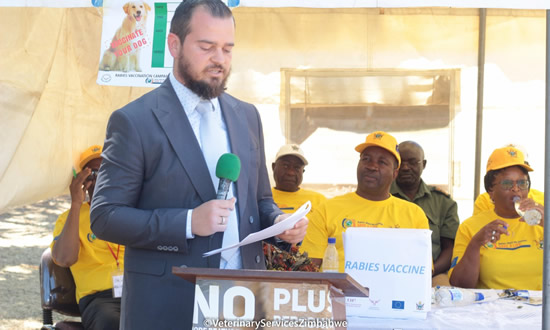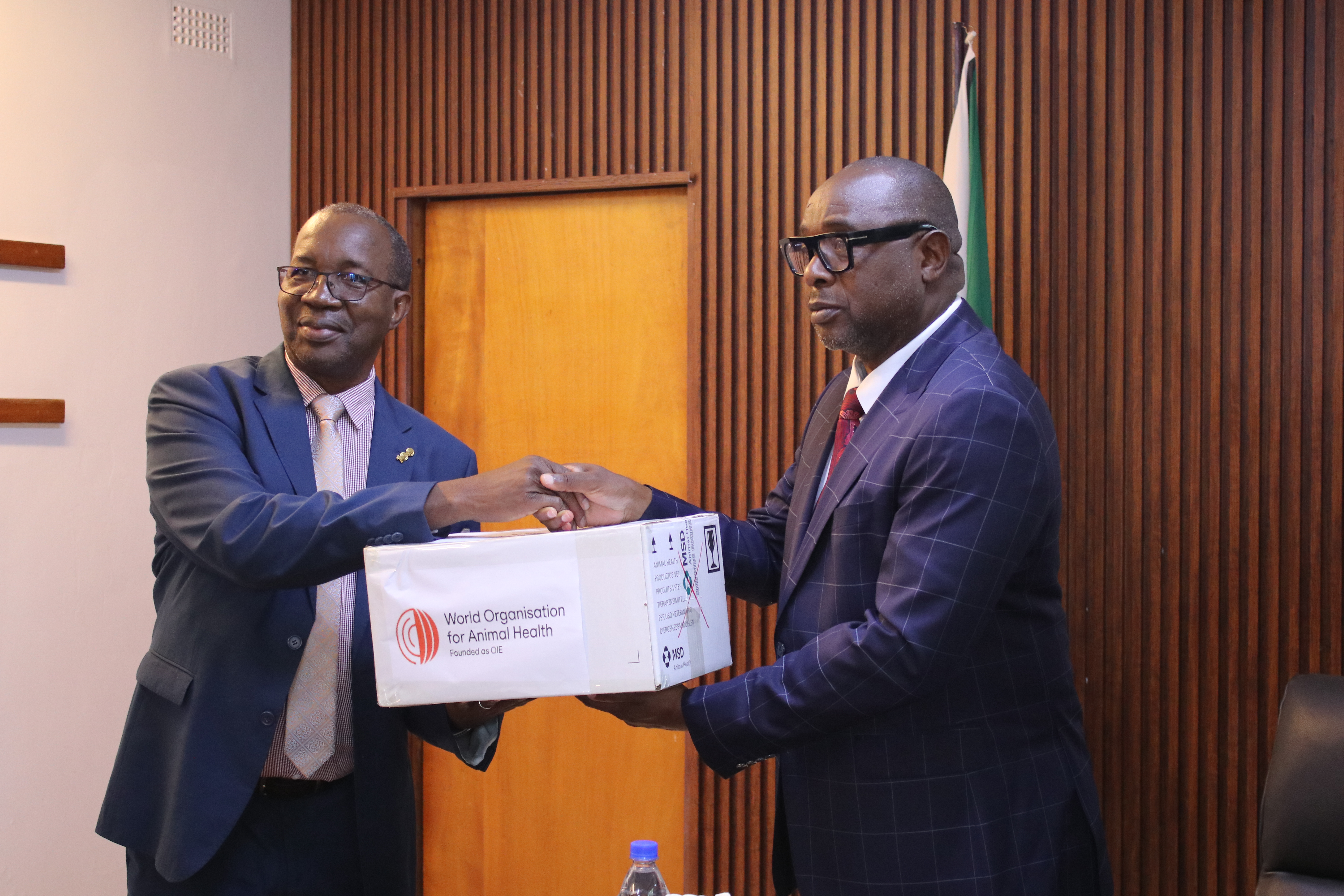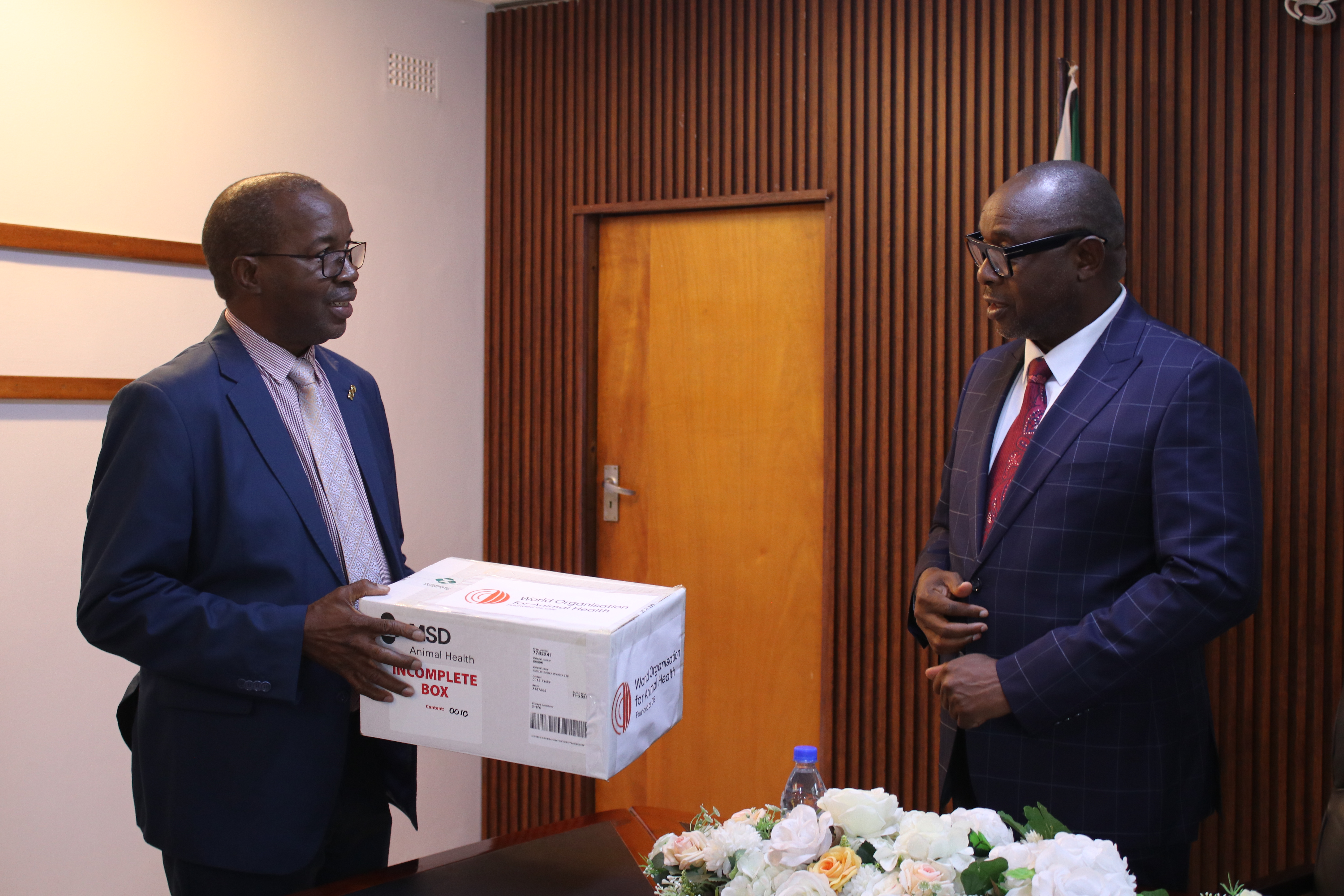
Dr. Moetapele Letshwenyo, WOAH Sub-Regional Representative for Southern Africa (left) handing over the vaccines to Hon. Davis Marapira ,Deputy Minister, Ministry of Lands, Agriculture, Fisheries, and Rural Development in Harare Zimbabwe. Picture (c) P. Bastiaensen (woah) 2025.
On 13 August 2025, in Harare, Zimbabwe, the World Organisation for Animal Health (WOAH) presented Zimbabwe’s Ministry of Lands, Agriculture, Fisheries, and Rural Development with 100,000 doses of high-quality rabies vaccine from the WOAH Rabies Vaccine Bank. This milestone, part of the ongoing One Health for Rabies and TADs (OHRT) Project supported by the Federal Republic of Germany, provides a critical boost to scaling up mass dog vaccination efforts in Zimbabwe’s rabies elimination program.
Rabies remains one of the deadliest but preventable zoonotic illnesses, killing thousands of people each year in Africa and Asia. In Zimbabwe, where the disease continues to threaten both rural and urban areas, vaccination of at least 70% of the dog population is critical to breaking the transmission cycle.
Dr. Moetapele Letshwenyo, WOAH’s Sub-Regional Representative for Southern Africa, emphasised the significance of a sustained commitment to rabies elimination during the handover ceremony and commended Zimbabwe’s effective use of prior vaccine consignments, such as the 110,000 doses donated in 2019. “These vaccines are shields of protection for both people and animals; they are not just doses in vials,” he stated.
Receiving the donation, Deputy Minister Hon. Davis Marapira thanked WOAH for their continued support. He stated that the vaccines will be distributed immediately in upcoming campaigns aimed at vaccinating both owned and stray dogs, with safeguards in place to ensure a strong cold-chain system that keeps vaccine efficacy from storage to field.
This handover exercise is part of the One Health approach. Earlier this year, WOAH helped Zimbabwe develop a National Strategic Plan for dog-mediated rabies control, working with FAO, WHO, and other partners. This blueprint guides the country’s path toward eliminating dog-mediated human rabies deaths by 2030, in line with the global “Zero by 30” target.
Beyond the numbers, the impact is profoundly human centered: communities will be empowered to safeguard their own health and the health of their animals, fewer families will lose loved ones to an avoidable disease, and fewer children will experience the trauma of rabies exposure.
Hon. Davis Marapira - Deputy Minister, Ministry of Lands, Agriculture, Fisheries, and Rural Development (Zimbabwe)
Dr Moetapele Letshwenyo, WOAH Sub-Regional Representative for Southern Africa.



